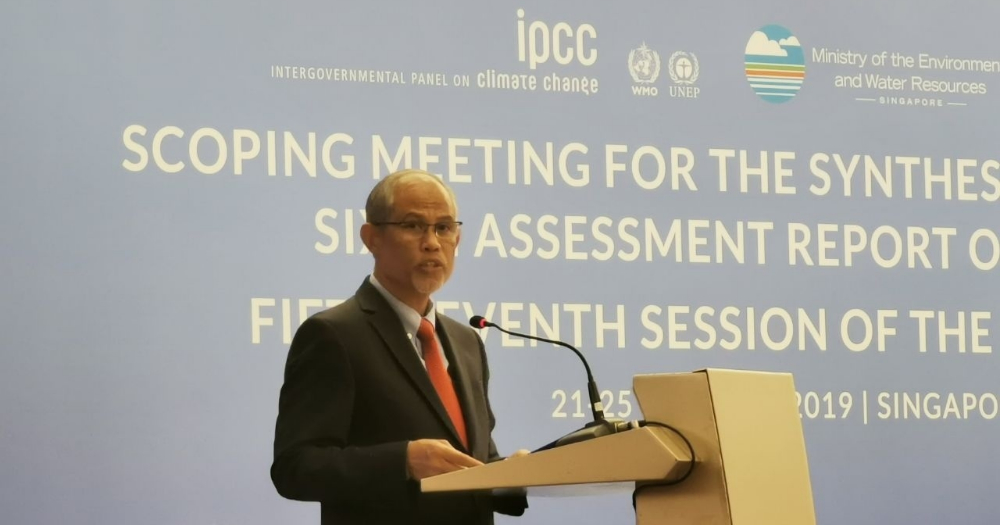"We must not take our eyes off the long-term, existential challenge of climate change. Otherwise, citizens will take their cause to the streets and reason will fail to rule," said Minister for Environment and Water Resources, Masagos Zulkifli, on Oct. 21, 2019.
The environment minister said this in his speech at a meeting with scientists from the Intergovernmental Panel on Climate Change (IPCC), which is a body of the United Nations.
This is Singapore's first time hosting an IPCC meeting, held from Oct. 21 to 25, 2019.
Over the next three days, about 80 scientists will gather at Resort World Sentosa's Convention Centre to decide what to include in the upcoming assessment report, which will guide policymakers with relevant information about climate change.
This report will also form the basis of future international negotiations.
Govts have to take climate change seriously
In his speech, Masagos highlighted the importance the government working with its people as concerns about climate change reach a new global peak.
Climate strikes and rallies that took place worldwide last month, where demonstrators demanded urgent and ambitious climate action, are exemplary of such concerns.
Masagos said,
"Citizens around the world have come to recognise climate change for what it is – the defining issue of our times. We saw last month many climate strikes and rallies held by young people all over the world demanding urgent and ambitious climate action. Young people echo each other very quickly. In Singapore too, our youth turned out for the first ever Climate Rally. Young people are rightly concerned about climate change and how this impacts their future."
As such, world leaders have to take responsibility to take climate change seriously and instil confidence in the people.
Singapore's commitment to tackling climate change
Singapore contributes 0.11 per cent of global emissions.
In his speech, Masagos acknowledged that the island-state needs to overcome constraints such as its limited access to clean energy, and work hard to curb our carbon emission growth through research and innovation.
The National Climate Change Secretariat (NCCS) has recently completed an open call for public opinions on the measures that the government can take to reduce Singapore’s carbon footprint.
Some of the ideas include the potential use of "clean fuels" such as hydrogen.
At the recent National Day Rally, Prime Minister Lee Hsien Loong also announced a S$100 billion commitment to protect Singapore from the long-term impact of climate change.
During his speech, Masagos emphasised again that this will be a "huge but necessary undertaking".
Actions taken must be based on robust science
However, Masagos also added that such hefty investments must depend on robust scientific research and evidence — which is why Singapore has been supportive of the IPCC, who is regarded as an authoritative voice on climate science.
"The IPCC plays an important role as an independent body that provides robust, objective and transparent scientific assessments. In today’s world where the discourse on climate change has become politically heightened, the IPCC’s role is even more critical in imbuing greater objectivity and scientific rigour in our dialogues and policy choices."
Singapore also established the Centre for Climate Research Singapore (CCRS) in 2013 to focus on tropical weather and climate research.
The CCRS will be expanding to include a new programme office next year, where its scientists will be updating Singapore's climate projections, taking into account findings from the international scientific community.
More details of Singapore's Third National Climate Change Study will be revealed in 2022.
Top photo by Zheng Zhangxin
If you like what you read, follow us on Facebook, Instagram, Twitter and Telegram to get the latest updates.
